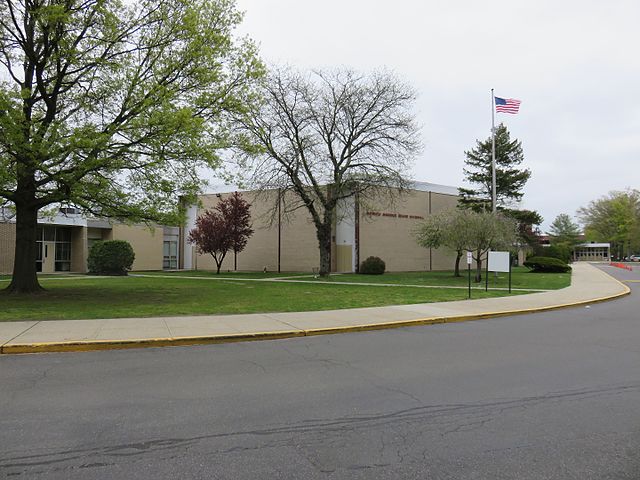
The North Shore School District is proposing cuts to its 2023-24 budget primarily due to the loss of revenue from the LIPA power plant that will reduce the salaries of many employees.
The austerity cutbacks will mean lower paychecks for the business administrator, multiple principals, special education teachers, aides and assistants, and office secretaries. The high school English language learners’ budget is also proposed to be decreased, as well as foreign language expenses, music supplies and middle school math textbooks.
While Dr. Christopher Zublionis’ salary as superintendent will not be affected, his salary does reflect a decrease in the proposed budget. This is because he was hired after the 2022-23 budget was approved, which ultimately was more than his contracted salary upon hiring.
An adjustment to the budget’s allotted salary for the superintendent was made when he was hired to reflect his contract. This year’s budget has been adjusted to reflect the superintendent’s contracted salary of $260,000.
The superintendent is not taking a pay cut, although he said he would do it for the district. Compared to the last four years, Zublionis’ salary will be the lowest for the superintendent and thus a smaller portion of the budget.
Zublionis said the superintendent’s salary is based on experience, which is why as a new superintendent he is earning less than his predecessor. He previously was the assistant superintendent of instruction at the North Shore Schools.
The North Shore School District is proposing a $120 million budget and a tax levy of $89 million for the 2023-24 school year
This budget is increasing by about 3.8%, compared to the current academic year’s budget of nearly $116 million. This reflects a trend of increasing budgets over the previous five years.
Overall, the district is experiencing major losses of revenue and inflationary costs that its budget must adjust to.
The biggest loss for the district, according to Zublionis, is the loss of revenue from the Long Island Power Authority power plant.
Zublionis said that for generations the North Shore had the LIPA power plant. The plant opened in the 1950s and the North Shore Central School District was founded in tandem with it.
“For generations, a big portion of the [tax class] was paid by the power plant,” Zublionis said. “That worked as long as it was generating power.”
In Nassau county, the tax base is built around four classes: businesses, utilities, condos and homes. In areas with high business and retail revenue, those businesses pay taxes that then diminish the taxes paid by homeowners.
“When you live in an area where there’s a lot of industry or there’s a lot of retail, it pulls tax out of class 1 [homeowners],” Zublionis said.
But in 2010 the plant was decommissioned. In the wake of the decommissioning, Zublionis said that LIPA was grieving its taxes, which were finally settled in June.
That means, according to Zublionis, millions of dollars have been slashed from the tax roll and taxes have shifted to the residents.
“Over decades the district was kind of built around LIPA paying a big chunk of that tax,” Zublionis said. “Now the homeowner has to pay that and we’re getting each year less revenue from LIPA.”
In 2001, homeowners paid about 54.5% of the tax class share. In 2023, they now pay about 83.4%.
In total, the district has lost $2.35 million from LIPA revenue. LIPA is currently paying a direct assessment, which is gradually decreasing by millions of dollars a year. Zublionis said that over the next five years, the district projects it will lose more than $38 million in total revenues from LIPA.
In the past, the district had a law firm that assisted them with LIPA litigation. While those litigation funds are still allotted in the budget, that will go toward lobbying for grants to mitigate the revenue losses and potential future litigation for other tax roll issues
The budget allotment for LIPA litigation is proposed to be diminished for the next academic year, decreasing by $5,000, or 6.25%.
On top of losses in revenue from LIPA, the district, along with districts throughout and beyond Long Island, is experiencing an increase in costs due to inflation.
The district received about $2.1 million more in state aid, but Zublionis said it was not enough for their needs.
“[The state aid] was great, but then we got the health insurance projection, which was more than that,” Zublionis said.
While the district is proposing budget cuts in many areas amounting to about $2.7 million in cuts, the budget overall is increasing by nearly 3.8% or about $4.4 million. Zublionis said this is mostly attributed to increases in health insurance, retirement and debt service costs.
When the cost increases and revenue losses are added together, Zublionis said it amounts to $10.6 million the district has to make up for.
Overall, the district is trimming its budget in three areas: central administration by 2.77%, plant maintenance by 1.62% and supervision instruction by 7.45%.
The district’s Board of Education will be convening on March 9 to discuss the budget once more. The meeting will be held at 7:45 p.m. in the Glenwood Landing Auditorium. The budget is scheduled to be approved on March 23 and voted on May 16.






